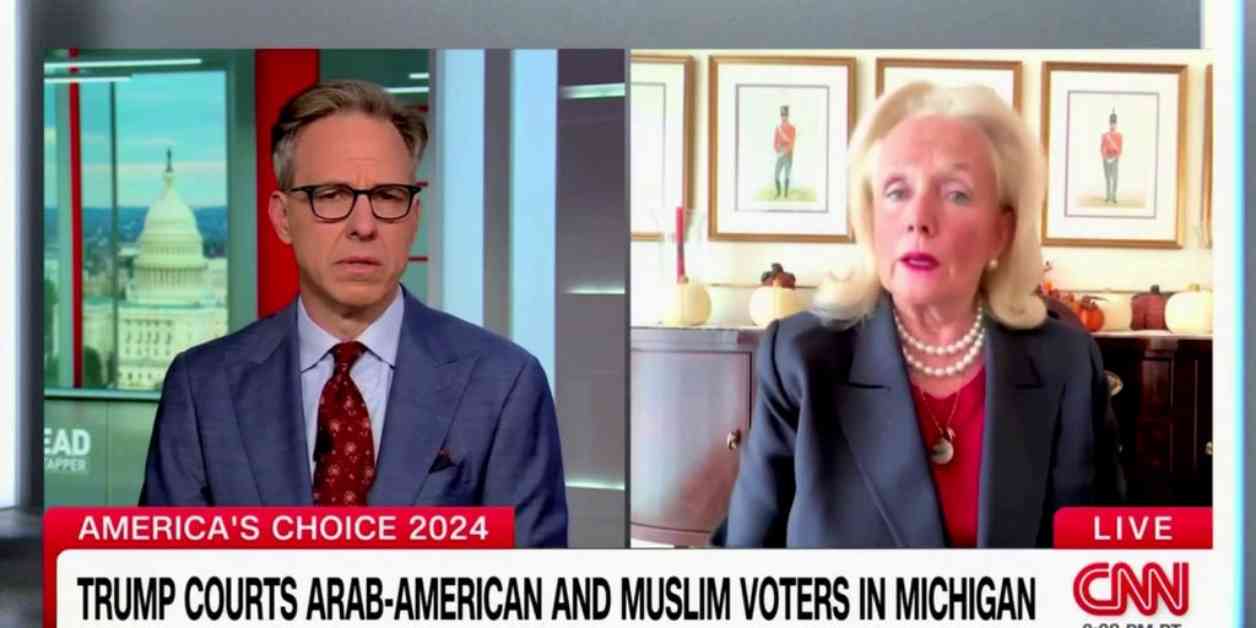Michigan Democratic Representative Debbie Dingell raised concerns during an interview with CNN’s Jake Tapper, suggesting that former President Trump has plans to establish internment camps if he wins re-election. Dingell expressed her worries about the Arab American and Muslim communities, emphasizing that Trump’s policies would be detrimental to them. She claimed that Trump has openly discussed the possibility of internment camps for Muslims and Arabs, urging voters to take his words seriously.
Tapper questioned Dingell about the specifics of Trump’s statements regarding internment camps, to which Dingell responded by mentioning that Trump has addressed the issue in various settings. While she did not provide a specific citation during the interview, Dingell asserted that Trump’s intentions were clear based on his past remarks.
Despite Dingell’s concerns, multiple Muslim leaders in Michigan recently endorsed Trump, citing his promises to end international conflicts as a reason for their support. Imam Belal Alzuhairi praised Trump for his commitment to peace and expressed hope that he would bring an end to bloodshed around the world. The endorsements came during a rally in Novi, Michigan, where Trump was praised for his stance on foreign policy.
The conflicting views within the Muslim community in Michigan highlight the diverse perspectives on the upcoming election. While Dingell and some voters fear the potential consequences of a Trump presidency, others believe that his policies could lead to a more peaceful future. The endorsements from Muslim leaders underscore the complexity of political allegiances and the importance of considering various viewpoints in the electoral process.
As the election approaches, the debates surrounding Trump’s policies and their potential impact on minority communities continue to intensify. Dingell’s warnings about internment camps serve as a stark reminder of the stakes involved in the upcoming election. Voters are encouraged to weigh the candidates’ statements and actions carefully as they make their decision at the polls.
In conclusion, the interview between Dingell and Tapper sheds light on the concerns and divisions within the Arab American and Muslim communities in Michigan. The contrasting perspectives on Trump’s policies underscore the complexity of political discourse and the need for informed decision-making in the electoral process. As the election draws near, voters are faced with critical choices that will shape the future of the country.




